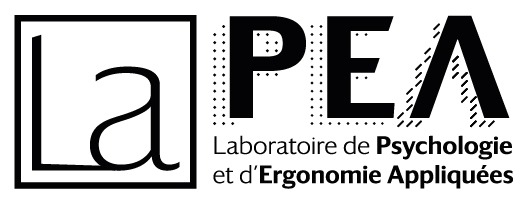Jeudi 27 février 2020
Title: The Attitude towards Objects in Spatial Contexts
Abstract
People must evaluate places for successfully navigating the environment. One’s attitude toward places depends on the intrinsic properties of places, but also on their relative position to other highly affectively salient locations – or “hotspots.” Basically, hotspots polarize space affectively because they elicit affective assimilation nearby but contrast further away. This polarization depends on the distance to the hotspot, the size of the spatial context and on how far the hotspots are perceived to spread their influence (Blaison & Hess, 2016). We will briefly present three sets of experiments that extend these basic findings. In the first (2 experiments, N = 602) we will show how positive hotspots, like parks, or negative hotspots, like unsafe housing blocks, influence the evaluation of places in deprived or wealthy neighborhoods differentially. In a second set (2 experiments, N = 473), we will show how the influence on the surroundings of negative hotspots may be mitigated by nearby positive hotspots. Interestingly, places in which participants’ self is invested, like a house supposedly belonging to their family for generations, is the most potent positive hotspot at mitigating the negative influence from a nearby negative hotspot. In a third set (2 experiments, N = 550) we will show how borders, even if they are perfectly passable (e.g., a railroad with bridges), accentuate the affective polarization of space usually elicited by negative hotspots.
Based on :
Blaison, C., Kastendieck, T. M., Ramadier, T., & Hess, U. (in press). Hotspots and borders interact in people’s affective perception of the environment. Journal of Environmental Psychology.
Blaison, C., Gebauer, J. E., Gollwitzer, M., Schott, F., Kastendieck, T. M., & Hess, U. (2018). On the combined influence of attractive and unattractive locations on the surroundings. Environment and Behavior, 50, 947-974.
Blaison, C., Fayant, M.-P., Hess, U. (2017). Contrast effect in spatial context: Robustness and practical significance. Journal of Experimental Psychology: Applied, 23, 474-483.
Blaison, C., Gollwitzer, M., & Hess, U. (2017). Effects of “hotspots” as a function of intrinsic neighborhood attractiveness. Journal of Environmental Psychology, 51, 57-69.
Blaison, C., & Hess, U. (2016). Affective judgment in spatial context: How places derive affective meaning from the surroundings. Journal of Environmental Psychology, 47, 53-65.
Biosketch
Christophe Blaison is Maître de Conférence at the Laboratoire de Psychologie Sociale (LPS) at the Université de Paris since 2018. From 2009 to 2018 he was an assistant professor at the Lehrstuhl für Sozial- und Organizationspsychologie at the Humboldt-University in Berlin (Chair: Prof. Ursula Hess). His interests span from implicit social cognition to affective processes in social cognition and context effects on affective judgment.
Lien vers travaux: https://www.researchgate.net/profile/Christophe_Blaison
